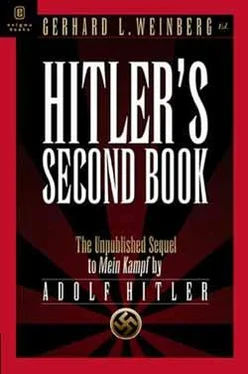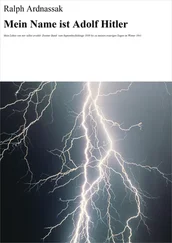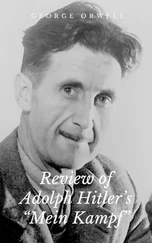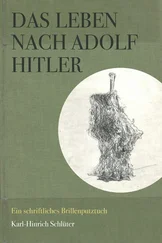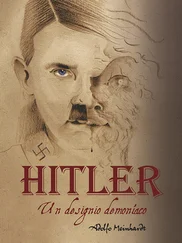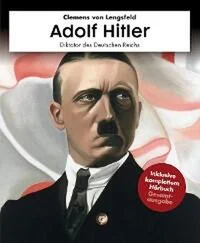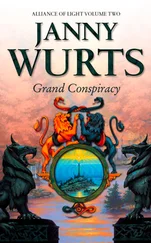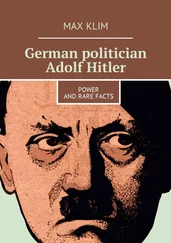The present distribution of world space in a one sided way turns out to be so much in favour of individual nations that the latter perforce have an understandable interest in not allowing any further change in the present distribution of territories. But the overabundance of territory enjoyed by these nations contrasts with the poverty of the others, which, despite the utmost industry, are not in a position to produce their daily bread so as to keep alive. What higher rights would one want to oppose against them if they also raise the claim to a land area which safeguards their sustenance?
No. The primary right of this world is the right to life, so far as one possesses the strength for this. Hence, on the basis of this right, a vigorous nation will always find ways of adapting its territory to its population size.
Once a nation, as the result either of weakness or bad leadership, can no longer eliminate the disproportion between its increased population and the fixed amount of territory by increasing the productivity of its soil, it will necessarily look for other ways. It will then adapt the population size to the soil.
Nature as such herself performs the first adaptation of the population size to the insufficiently nourishing soil.
Here distress and misery are her devices. A Folk can be so decimated through them that any further population increase practically comes to a halt. The consequences of this natural adaptation of the Folk to the soil are not always the same. First of all a very violent struggle for existence sets in, which only individuals who are the strongest and have the greatest capacity for resistance can survive. A high infant mortality rate on the one hand and a high proportion of aged people on the other are the chief signs of a time which shows little regard for individual life. Since, under such conditions, all weaklings are swept away through acute distress and illness, and only the healthiest remain alive, a kind of natural selection takes place. Thus the number of a Folk can easily be subject to a limitation, but the inner value can remain, indeed it can experience an inner heightening.
But such a process cannot last for too long, otherwise the distress can also turn into its opposite. In nations composed of racial elements that are not wholly of equal value, permanent malnutrition can ultimately lead to a dull surrender to the distress, which gradually reduces energy, and instead of a struggle which fosters a natural selection, a gradual degeneration sets in. This is surely the case once man, in order to control the chronic distress, no longer attaches any value to an increase of his number, and resorts on his own to birth control. For then he himself immediately embarks upon a road opposite to that taken by nature. Whereas nature, out of the multitude of beings who are born, spares the few who are most fitted in terms of health and resistance to wage life’s struggle, man limits the number of births, and then tries to keep alive those who have been born with no regard to their real value or to their inner worth. Here his humanity is only the handmaiden of his weakness, and at the same time it is actually the cruellest destroyer of his existence. If man wants to limit the number of births on his own, without producing the terrible consequences which arise from birth control, he must give the number of births free rein but cut down on the number of those remaining alive. At one time the Spartans were capable of such a wise measure, but not our present, mendaciously sentimental, bourgeois patriotic nonsense.
The rule of six thousand Spartans over three hundred and fifty thousand Helots was only thinkable in consequence of the high racial value of the Spartans. But this was the result of a systematic race preservation; thus Sparta must be regarded as the first Folkish State. The exposure of sick, weak, deformed children, in short their destruction, was more decent and in truth a thousand times more humane than the wretched insanity of our day which preserves the most pathological subject, and indeed at any price, and yet takes the life of a hundred thousand healthy children in consequence of birth control or through abortions, in order subsequently to breed a race of degenerates burdened with illnesses.
Hence it can be said in general that the limitation of the population through distress and human agencies may very well lead to an approximate adaptation to the inadequate living space, but the value of the existing human material is constantly lowered and indeed ultimately decays.
The second attempt to adapt the population size to the soil lies in emigration, which so long as it does not take place tribally, likewise leads to a devaluation of the remaining human material.
Human birth control wipes out the bearer of the highest values, emigration destroys the value of the average.
There are still two other ways by which a nation can try to balance the disproportion between population and territory. The first is called increasing the domestic productivity of the soil, which as such has nothing to do with so called internal colonisation; the second the increase of commodity production and the conversion of the domestic economy into an export economy.
The idea of increasing the yield of the soil within borders that have been fixed once and forever is an old one.
The history of human cultivation of the soil is one of permanent progress, permanent improvement and therefore of increasing yields. While the first part of this progress lay in the field of methods of soil cultivation as well as in the construction of settlements, the second part lies in increasing the value of the soil artificially through the introduction of nutritious matter that is lacking or insufficient. This line leads from the hoe of former times up to the modern steam plough, from stable manure up to present artificial fertilisers. Without doubt the productivity of the soil has thereby been infinitely increased. But it is just as certain that there is a limit somewhere. Especially if we consider that the living standard of cultured man is a general one, which is not determined by the amount of a nation’s commodities available to the individual; rather it is just as much subject to the judgement of surrounding countries and, conversely, is established through the conditions within them. The present day European dreams of a living standard which he derives as much from the potentialities of Europe as from the actual conditions prevailing in America. International relations between nations have become so easy and close through modern technology and the communication it makes possible, that the European, often without being conscious of it, applies American conditions as a standard for his own life. But he thereby forgets that the relation of the population to the soil surface of the American continent is infinitely more favourable than the analogous conditions of European nations to their living spaces. Regardless of how Italy, or let’s say Germany, carry out the internal colonisation of their soil, regardless of how they increase the productivity of their soil further through scientific and methodical activity, there always remains the disproportion of the number of their population to the soil as measured against the relation of the population of the American Union to the soil of the Union. And if a further increase of the population were possible for Italy or Germany through the utmost industry, then this would be possible in the American Union up to a multiple of theirs. And when ultimately any further increase in these two European countries is no longer possible, the American Union can continue to grow for centuries until it will have reached the relation that we already have today.
The effects that it is hoped to achieve through internal colonisation, in particular, rest on a fallacy. The opinion that we can bring about a considerable increase in the productivity of the soil is false. Regardless of how, for example, the land is distributed in Germany, whether in large or in small peasant holdings, or in plots for small settlers, this does not alter the fact that there are, on the average, 136 people to one square kilometre. This is an unhealthy relation. It is impossible to feed our Folk on this basis and under this premise. Indeed it would only create confusion to set the slogan of internal colonisation before the masses, who will then latch their hopes onto it and thereby think to have found a means of doing away with their present distress. This would not at all be the case. For the distress is not the result of a wrong kind of land distribution, say, but the consequence of the inadequate amount of space, on the whole, at the disposal of our nation today.
Читать дальше
